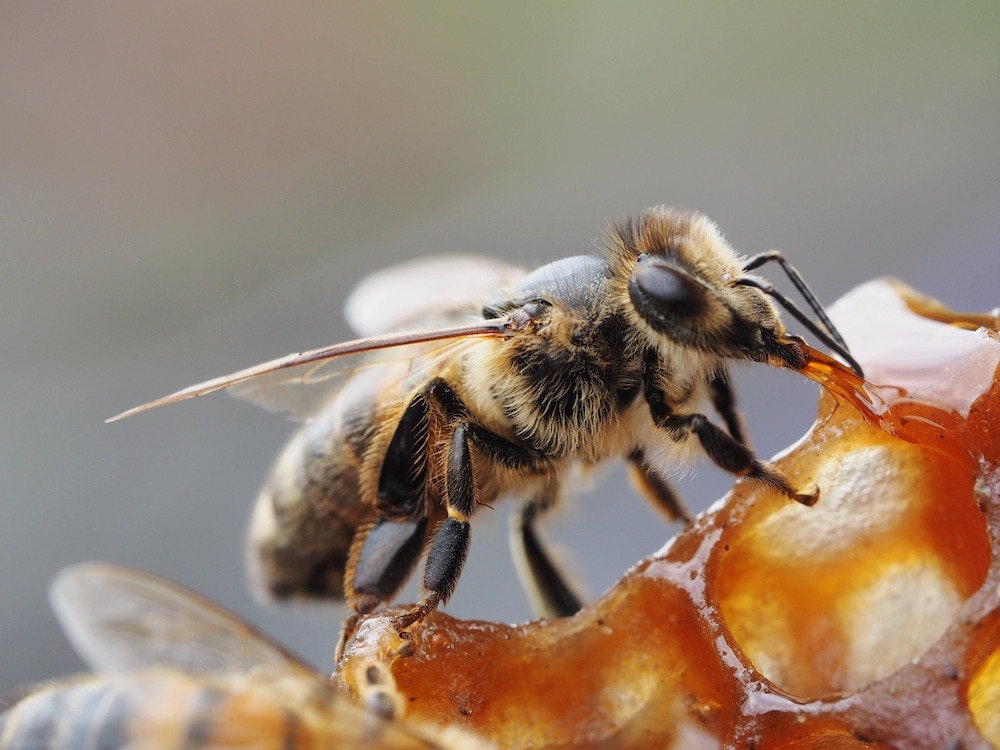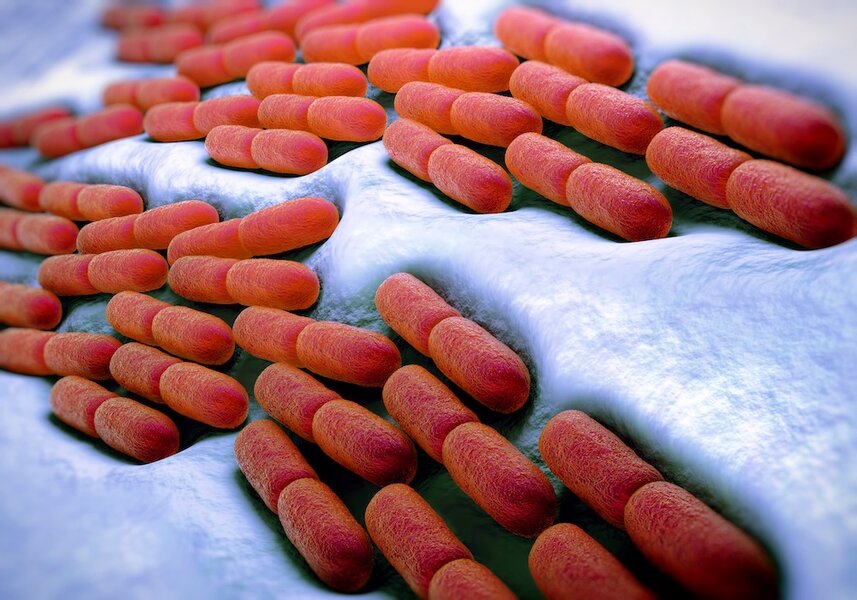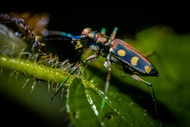Create a free profile to get unlimited access to exclusive videos, sweepstakes, and more!
For increased memory, bees trust their gut (bacteria)
Microbes are the sixth food group and they're super important.

People have been trying for years to understand exactly what’s going on inside our minds, and how some people seem to get vastly different productivity out of essentially the same hardware. Individuals living in the same areas, interacting with one another, might have entirely different levels of performance on learning and memory tasks while their brains look more or less the same. It turns out, we might have been looking in the wrong place.
The gut microbiome is increasingly being recognized for its impact on cognition, though the precise relationships remain to be fully explored. Counterintuitive though it may be, at least some of what’s coming out of your brain gets its start in the digestive system in the form of bacterial colonies.
A recent study by scientists at Jiangnan University and Queen Mary University of London set out to determine how bacterial populations in the gut influence the ability of individual bees to perform memory recall tasks. Their results were published in the journal Nature Communications.
Researchers first needed a baseline of individual bee intelligence. So, they constructed an experiment requiring bees to distinguish between five different colors associated with a reward and five colors associated with punishment. The bees were then given the same test three days later in order to determine their ability to retain the learned information. These two experiments gave scientists two critical pieces of information — the bees’ ability to learn, and their ability to retain that learned information long-term.
With that data in hand, the team sequenced the genes present in the bees’ hindgut, filtering out any genes belonging to the actual insects. Bees have comparatively small digestive systems to humans, which makes them easier to investigate. Their microbiome is largely made up of only a handful of bacterial species. Those five most-dominant species account for approximately 92 percent of the total microbiome, and that was true even among the individuals they tested. However, they did vary in the distribution of bacteria across individuals.
By comparing the abundance of each type of bacteria to the performance of both the learning and memory retention tasks, they discovered an interesting correlation. Those individuals who exhibited stronger memory retention had a correspondingly higher amount of Lactobacillus — specifically Lactobacillus Firm-5 — in their guts. There was no such correlation among any of the other four common bacteria, suggesting that lactobacillus might be the key.
Still, correlation doesn’t necessarily signal causation. There might have been any number of factors influencing an individual bee’s ability to learn and retain information, with bacterial abundance either a secondary consequence or a statistical coincidence. So, the team set up a second set of experiments to validate that Lactobacillus Firm-5 was truly the source of improved cognition among individual bees.
To test the hypothesis, scientists fed bees on a sugar solution containing Lactobacillus Firm-5 which increased the total abundance in the gut of experimental individuals. Control groups of bees were also fed a modified diet containing other strains of bacteria. The tests were then repeated and those bees who received a boost of Lactobacillus performed better on the memory test, indicating that the presence of the bacteria was a significant driver of cognitive performance.
Microbiomes in bees, as with other animals, are unique to the individual and based on a number of factors including diet and interactions with other individuals. Bacteria are passed from one individual to another either through shared feeding or other in-nest social interactions. Moreover, as with humans, it’s believed that each of the primary bacteria present in the microbiome of bees has some symbiotic role. While certain bacteria assist in the breakdown of foods, these results suggest there is a secondary effect which extends well beyond the digestive system and into the brain.
Next time someone yells at you for drinking a sugary beverage left out on the counter overnight, you can confidently tell them you’re shifting the distribution of your microbiome. You might end up with a memory good enough to not forget the soda on the nightstand. Or you might get food poisoning. It’s a coin toss.



























